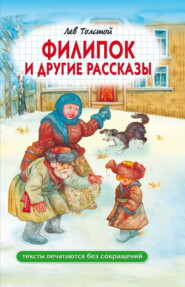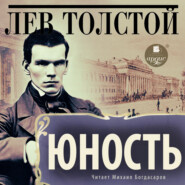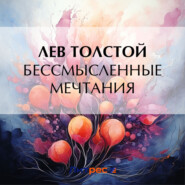По всем вопросам обращайтесь на: info@litportal.ru
(©) 2003-2025.
✖
My Religion
Настройки чтения
Размер шрифта
Высота строк
Поля
See Levit. xix. 17, 18.
9
Contra Celsum, book VIII. chap. LXXIII.
10
Isaiah lxi. 1, 2.
11
Heb. ii. 2. Literally, "Faith is the support of the hoped for, the conviction of the unseen."
12
In all the translations authorized by the Church, we find here a perhaps intentional error. The words ἐν ὑμῖν, in you, are invariably rendered with you.
13
Marcus Aurelius says: "Reverence that which is best in the universe; and this is that which makes use of all things and directs all things. And in like manner also reverence that which is best in thyself; and this is of the same kind as that. For in thyself, also, that which makes use of everything else, is this, and thy life is directed by this." (Meditations v. 21.)
Epictetus says: "From God have descended the seeds not only to my father and grandfather, but to all beings which are generated on the earth and are produced, and particularly to rational beings; for these only are by their nature formed to have communion with God, being by means of reason conjoined with him." (Discourses, chap. ix.)
Confucius says: "The law of the great learning consists in developing and re-establishing the luminous principle of reason which we have received from on high." This sentence is repeated many times, and constitutes the basis of Confucius' doctrine.
14
The words of verse 25 are incorrectly translated; the word ἡλικίαν means age, age of life: consequently the whole phrase should be rendered: can add one hour to his life.
15
Exod. iii. 6.
16
John xi. 19-22; Matt. xii. 40; Luke xi. 30; Matt. xvi. 21; Mark viii. 31; Luke ix. 22; Matt. xvii. 23; Mark ix. 31; Matt. xx. 19; Mark x. 34; Luke xviii. 33; Matt. xxvi. 32; Mark xiv. 25.
17
A city in Russia become famous by a recent catastrophe.
18
The epistle of James was for a long time rejected by the Church, and when accepted, was subjected to various alterations: certain words are omitted, others are transposed, or translated in an arbitrary way. I have restored the defective passages after the text authorized by Tischendorf.
19
Here, as in other passages, δόξα has been incorrectly translated "honor"; δόξα, from the verb δοκέω, means "manner of seeing, judgment, doctrine."
20
Jesus is led into the desert to be tempted of error. Error suggests to Jesus that he is not the Son of God if he cannot make stones into bread. Jesus replies that he lives, not by bread alone, but by the word of God. Then Error says that if he lives by the word or spirit of God, the flesh may be destroyed, but the spirit will not perish. Jesus' reply is that life in the flesh is the will of God; to destroy the flesh is to act contrary to the will of God, to tempt God. Error then suggests that if this be true, he should, like the rest of the world, place himself at the service of the flesh, and the flesh will give him satisfaction. Jesus' reply is that he can serve God only because the true life is spiritual, and has been placed in the flesh by the will of God. Jesus then leaves the desert and returns to the world. (Matt. iv. 1-11; Luke iv. 1-13.)
21
The justification of this existence made by parents is very curious. "I need nothing for myself," the father says; "this way of living is very distasteful to me; but, because of affection for my children, I endure its burdens." In plain terms his argument would be: "I know by experience that my way of living is a source of unhappiness, consequently I am training my children to the same unhappy method of existence. For love of them, I bring them into a city permeated with physical and moral miasma; I give them into the care of strangers, who regard the education of the young as a lucrative enterprise; I surround my children with physical, moral, and intellectual corruption." And this reasoning must serve as a justification of the absurd existence led by the parents themselves.
22
See Appendix.
23
This book has been in use in all the schools and churches of Russia since 1839. – Tr.
9
Contra Celsum, book VIII. chap. LXXIII.
10
Isaiah lxi. 1, 2.
11
Heb. ii. 2. Literally, "Faith is the support of the hoped for, the conviction of the unseen."
12
In all the translations authorized by the Church, we find here a perhaps intentional error. The words ἐν ὑμῖν, in you, are invariably rendered with you.
13
Marcus Aurelius says: "Reverence that which is best in the universe; and this is that which makes use of all things and directs all things. And in like manner also reverence that which is best in thyself; and this is of the same kind as that. For in thyself, also, that which makes use of everything else, is this, and thy life is directed by this." (Meditations v. 21.)
Epictetus says: "From God have descended the seeds not only to my father and grandfather, but to all beings which are generated on the earth and are produced, and particularly to rational beings; for these only are by their nature formed to have communion with God, being by means of reason conjoined with him." (Discourses, chap. ix.)
Confucius says: "The law of the great learning consists in developing and re-establishing the luminous principle of reason which we have received from on high." This sentence is repeated many times, and constitutes the basis of Confucius' doctrine.
14
The words of verse 25 are incorrectly translated; the word ἡλικίαν means age, age of life: consequently the whole phrase should be rendered: can add one hour to his life.
15
Exod. iii. 6.
16
John xi. 19-22; Matt. xii. 40; Luke xi. 30; Matt. xvi. 21; Mark viii. 31; Luke ix. 22; Matt. xvii. 23; Mark ix. 31; Matt. xx. 19; Mark x. 34; Luke xviii. 33; Matt. xxvi. 32; Mark xiv. 25.
17
A city in Russia become famous by a recent catastrophe.
18
The epistle of James was for a long time rejected by the Church, and when accepted, was subjected to various alterations: certain words are omitted, others are transposed, or translated in an arbitrary way. I have restored the defective passages after the text authorized by Tischendorf.
19
Here, as in other passages, δόξα has been incorrectly translated "honor"; δόξα, from the verb δοκέω, means "manner of seeing, judgment, doctrine."
20
Jesus is led into the desert to be tempted of error. Error suggests to Jesus that he is not the Son of God if he cannot make stones into bread. Jesus replies that he lives, not by bread alone, but by the word of God. Then Error says that if he lives by the word or spirit of God, the flesh may be destroyed, but the spirit will not perish. Jesus' reply is that life in the flesh is the will of God; to destroy the flesh is to act contrary to the will of God, to tempt God. Error then suggests that if this be true, he should, like the rest of the world, place himself at the service of the flesh, and the flesh will give him satisfaction. Jesus' reply is that he can serve God only because the true life is spiritual, and has been placed in the flesh by the will of God. Jesus then leaves the desert and returns to the world. (Matt. iv. 1-11; Luke iv. 1-13.)
21
The justification of this existence made by parents is very curious. "I need nothing for myself," the father says; "this way of living is very distasteful to me; but, because of affection for my children, I endure its burdens." In plain terms his argument would be: "I know by experience that my way of living is a source of unhappiness, consequently I am training my children to the same unhappy method of existence. For love of them, I bring them into a city permeated with physical and moral miasma; I give them into the care of strangers, who regard the education of the young as a lucrative enterprise; I surround my children with physical, moral, and intellectual corruption." And this reasoning must serve as a justification of the absurd existence led by the parents themselves.
22
See Appendix.
23
This book has been in use in all the schools and churches of Russia since 1839. – Tr.

















